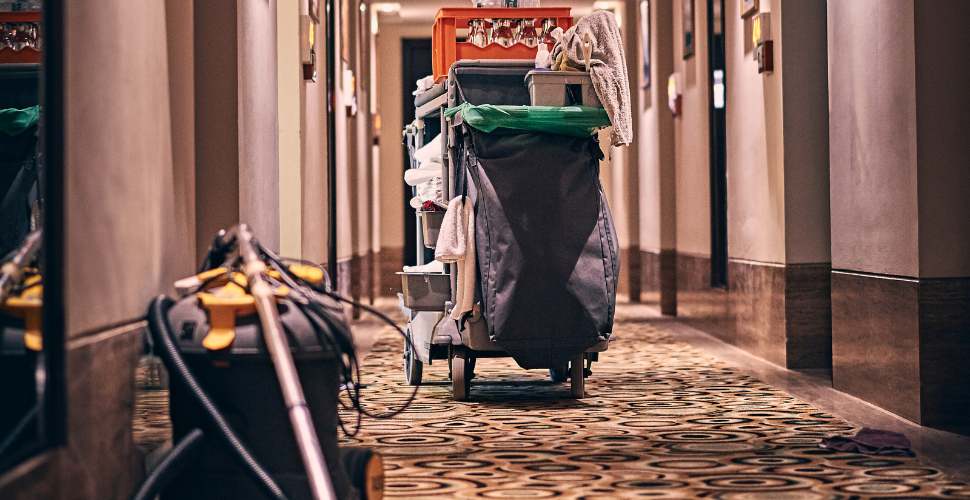Despite 2020 labor reforms, migrant workers continue to face widespread abuse and exploitation in Qatar. The government must take urgent steps to hold employers accountable and to enable workers to easily change jobs, Kenyan workers told Doha News.
“We all cry together”
Kate moved to Qatar in 2021 to work as a cleaner. She was promised attractive benefits, including a QAR 1,000 monthly salary, a QAR 300 food stipend, free accommodation, and overtime pay. Excited about the offer, she used all her savings to pay a recruitment agency to secure her a position.
She had heard about the country’s labor reforms and trusted that her experience would be better than in other Gulf countries. But when she arrived in Doha, her hopes were dashed. The night she arrived, her employer removed her passport by force, a practice which is technically now illegal.
After her first month of work, Kate’s employer was late to pay – when her salary finally came, it was half the amount she had been promised. She continued to receive half the agreed amount until the fourth month, when she was told there was no work for her and so no pay.
Her employer currently owes her QAR 4,200 in wages and has failed to renew her Qatar residency ID, putting her at risk of arrest, detention, and deportation.
She lives in a room with six other Kenyan girls who report similar experiences, including unpaid wages and abuse. “When one of us cries at night, we all cry together,” says Kate.
Stuck with an exploitative employer
Given the lack of payment, Kate looked for another company to work for. In theory, Qatar’s new labor rules mean that migrant workers can now change jobs at any time as long as they give adequate notice.
However, the day before Kate was supposed to transfer to her new company, her employer barged into her house and told her she could not leave. He even threatened to lock her up. The following day, the labor ministry told her she could no longer transfer with no explanation as to why not.
“I don’t know what he [company manager] told the labour office. It’s either he knows someone there who can easily do what he wants or he lied and told them I tried to run away,” Kate told Doha News.
She has been stuck with her employer ever since.
Even if I wanted to run away, I would not be able to without my passport. My residency permit has expired. If I get caught, I will immediately be deported. I feel stuck. I and other Kenyan girls here are suffering. We don’t know what to do.
Qatar still has work to do
Although many migrant workers have benefitted from the reforms Qatar made in 2020, many others, like Kate, find themselves at the mercy of employers that do not comply with the law.
Qatar must take urgent steps to improve the implementation and enforcement of the law. Efforts must also be made to educate workers and employers on how the reforms affect them.
Over 100,000 members of the Freedom United community have called on Qatar’s labor ministry to ensure a stronger implementation of reforms. Join us today!







Freedom United is interested in hearing from our community and welcomes relevant, informed comments, advice, and insights that advance the conversation around our campaigns and advocacy. We value inclusivity and respect within our community. To be approved, your comments should be civil.
thanks for post this blog its really good
Boycott to Katar until ends forced labor !!